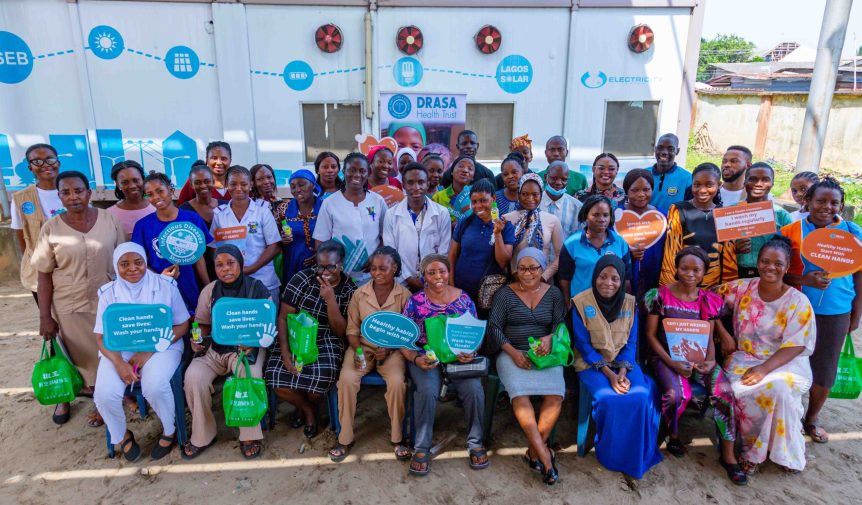Building the Capacity of Primary Healthcare Workers in Local Communities on Standard Infection Prevention and Control (IPC) Practices: Our Intervention at Badagry Local Government Area of Lagos State.
I used to think I should wash my hands only after attending to patients. However, through this training, I have learned about the other [5] moments of hand hygiene like washing hands before attending to patients”. — Health worker, Pota PHC, Badagry, Lagos State.
After gaining successful strides in Primary Healthcare Centres (PHCs) at Ibeju and Ikorodu Local Government Areas of Lagos state, we extended our reach to Badagry Local Government Area to educate primary healthcare workers in Ajara and Pota PHCs on the relevance of Infection Prevention and Control (IPC) within their health facilities. These local communities need robust health systems to help combat the spread of infectious diseases.
Establishing Contact
Primary Healthcare Centres play a crucial role in controlling the spread of infectious diseases in local communities. In areas without safe health facilities, the risk of rapid infection transmission within the community tends to increase.
IPC consists of a set of practices designed to minimize the spread of healthcare-associated infections in medical facilities. Adhering to standard IPC practices is essential for creating safe, resilient health facilities that can effectively prevent the transmission of infections.
However, many healthcare workers lack knowledge of the IPC practices and habits necessary to reduce risks so to address this issue, we took our expertise to Pota and Ajara primary healthcare centers (PHCs) in the Badagry Local Government Area of Lagos State. We conducted preliminary meetings with the health centers’ authorities to understand the challenges and gaps they face in implementing standard IPC practices. During these discussions, we explored potential interventions to improve their IPC efforts.

Training and Practicing
The implementation of standard IPC practices is not solely the responsibility of clinical staff; it also falls on non-clinical staff. To address this, we trained 59 health workers across various cadres, including nurses, midwives, doctors, medical record officers, health assistants, laboratory technicians, security officers, cleaners, and community health extension workers.
The training focused on core aspects of IPC standard precautions which included hand hygiene, effective cleaning strategies, germ transmission, proper techniques for donning and doffing gloves, the disposal of personal protective equipment (PPE), and effective methods for environmental sanitation in Primary Healthcare Centers (PHCs). The sessions were interactive, allowing participants to engage in hands-on practice to demonstrate what they had learned.

Making Learning Fun and Lasting
Reinforcing what participants have learned is crucial for retaining the knowledge acquired during the session. To achieve this, we held a fun and interactive event called the Hand Hygiene Café. During this event, participants answered questions based on the information they had just learned. They also took pictures with props that featured key messages about infection prevention. Additionally, participants pledged to adhere to standard IPC practices while performing their duties.


Our objective is to promote and uphold standard IPC practices across the entire state, one PHC at a time. By enhancing the capacity of these health workers, we strive to minimize the risk of disease transmission and improve overall public health outcomes in health facilities.




